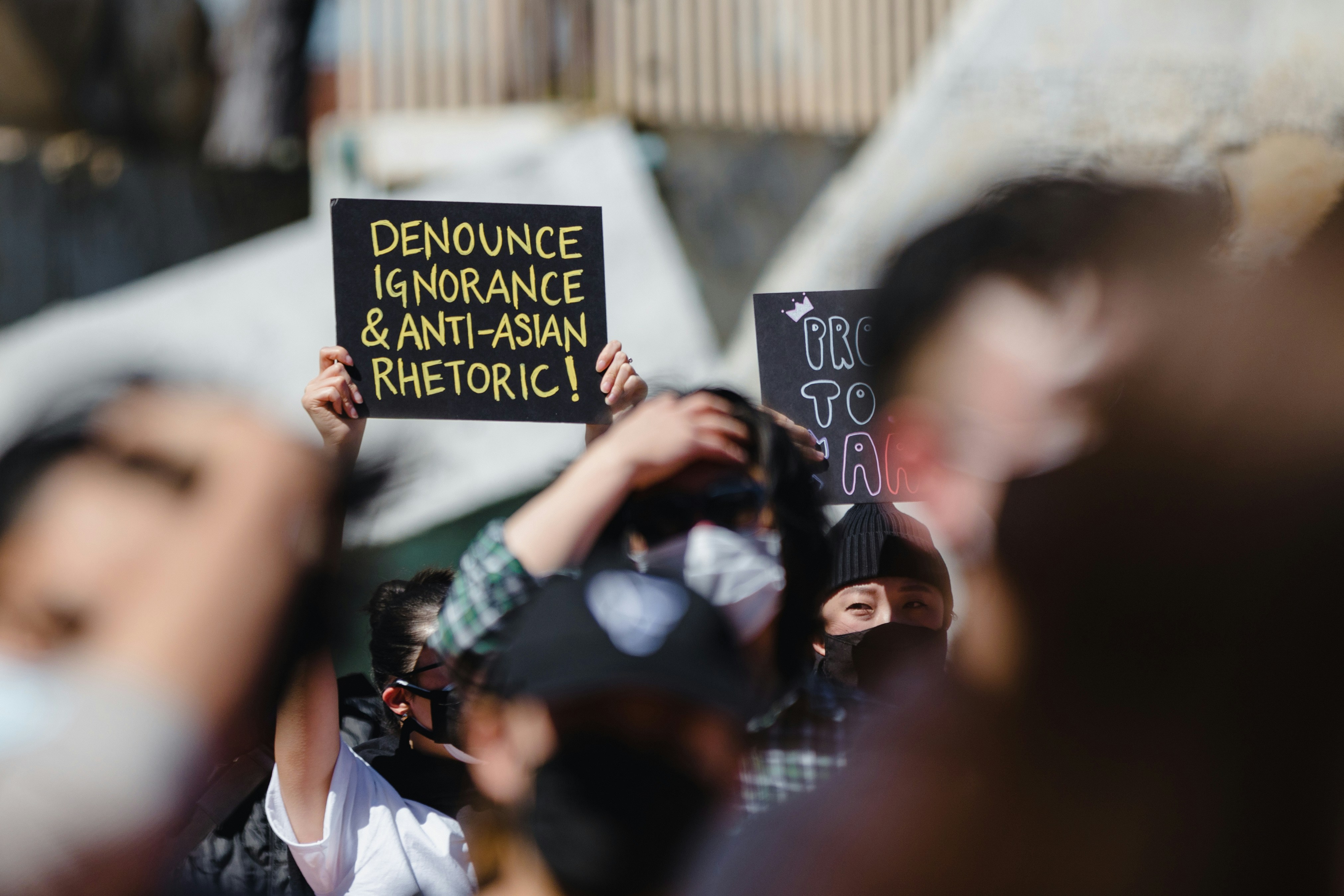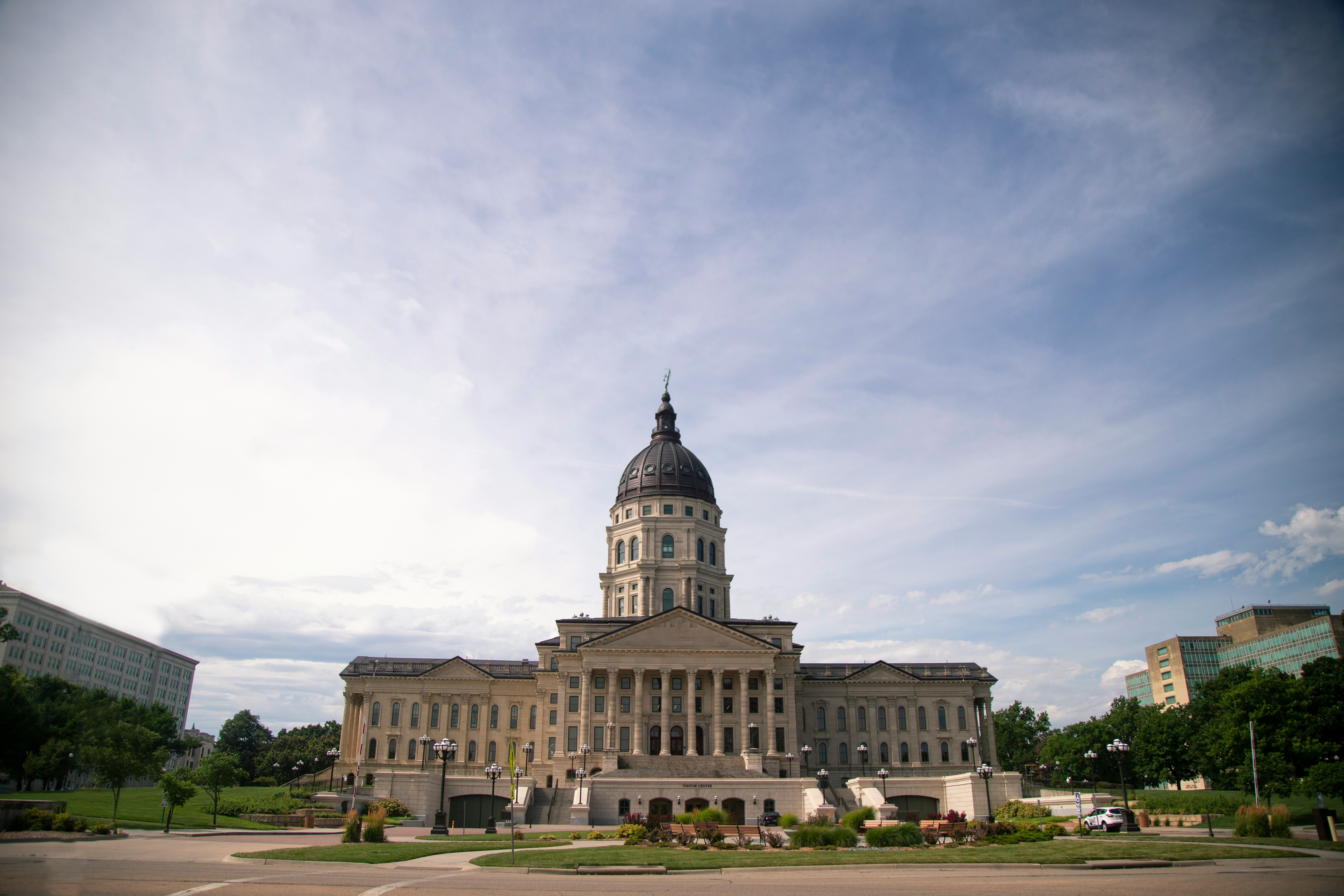In recent years, people have been talking a lot about cash bail and how it affects folks who don't have a lot of money or who are from communities that face discrimination, and the cash bail system that we see across the U.S. has come under scrutiny. Cash bail imposes economic hardship on marginalized communities, disrupts entire communities, and has overwhelming impacts on communities of color. Let's break it down and see why it's such a big deal.
Not being able to afford to pay bail has huge impacts on every aspect of life. Think about it… if you are living paycheck to paycheck and have to come up with money for bail, you might have to sacrifice paying for things like groceries or utilities in order to pay rent and keep a roof over your head. If you can’t afford to pay bail, you end up stuck behind bars and away from your job. This increases your chances of losing that job and the ripple effects just continue to spread. If you have kids, you have to find someone in your family or community to watch over them while you’re in pretrial detention. This adds stress on families and support communities, and this impacts Black and Hispanic folks especially hard, making the inequality gap even wider.
We have other options without cash bail being the only answer:
- Get out without bail: You promise to show up in court, and they let you go.
- Fair assessments: They look at your situation, not just your bank account, to decide what to do.
- Resource help: Programs help you deal with your issues and make sure you show up for court.
A lot of people that do not support cash bail argue that pretrial incarceration lowers homicide rates. This narrative is false, and most places in the U.S. that have the highest homicide rates still utilize cash bail. There is no connection between cash bail and lowering homicide rates. Instead of making things even harder for impacted and marginalized communities, we should be investing in these communities. Research shows that local investment in communities that need it the most does have an impact that lowers homicide rates. Cash bail does not make significant profits for states that still follow cash bail practices, but investing in communities that need local investment the most has shown to have positive impacts on lowering homicide and crime rates.
In Kansas, most people agree that cash bail needs fixing - nearly 70% of Kansans! A bunch of folks from all different backgrounds support changes to the system. It doesn’t matter what county you are from, it doesn’t matter if you’re in rural Kansas, metro areas, or suburbs – because this affects us all. Fixing cash bail isn't just about money – it's about making things right and treating everyone equally. It’s about trust, fairness, and making sure everyone gets treated the same, no matter how much money they have in the bank. It's a step toward justice for all.
Date
Tuesday, May 21, 2024 - 2:45pm
Featured image
Show featured image
Hide banner image
Related issues
Criminal Legal Reform
Show related content
Pinned related content
Glendening et al. v. Howard et al. [KDADS – Larned State Hospital]
Bail: Wealth-based Pre-trial Release
ACLU of Kansas sues over unconstitutionally long wait times for competency evaluations and treatment at Larned State Hospital
Lawsuit says Kansas must tackle nearly yearlong wait times at Larned State Hospital
ACLU sues Kansas over excessive wait times at understaffed Larned State Hospital
Tweet Text
[node:title]
Type
Menu parent dynamic listing
Show PDF in viewer on page
Style
Standard with sidebar
Show list numbers
Author
Rachel O'Flannagan
In 1913, California passed the Alien Land Law, which eroded the ability for immigrants from China, India, Japan, and Korea from owning land.
If that sounds familiar, it’s because Kansas Attorney General Kris Kobach championed a similar bill just a few months ago. And just like in history, this Kansas bill weaponized racism to give the government new, overreaching powers.
The conceit of the bill is restricting people from other countries from purchasing agricultural land in Kansas, ostensibly as a measure of National defense. These bills identify special nationalities for this discriminatory regulation; Chinese people are typically the primary target.
Like many of the extremist movements that find their way into Kansas bills—more than 20 states had similar bills this session—SB 446 would address very few real-world scenarios. Around 3% of U.S. farmland is foreign-owned, with Canada and the Netherlands owning significantly more than China.
Thankfully, Kobach failed spectacularly in gaining support for this discriminatory bill. Civil rights activists were joined by The Kansas Farm Bureau, Livestock Association, Agribusiness Retailers Association, Corn Growing Association and Soybean Association in opposing the bill.
It’s seldom a bill is so bad to get such widespread opposition. The bill was publicly chastised and failed to move towards becoming law. Still, lawmakers rallied at the end of session to push through SB 172, a similarly problematic bill. Governor Kelly vetoed SB 172, preventing it from becoming law.
Sadly, that isn’t the end of the story. Though these bill were defeated, they represent a rash of anti-Asian rhetoric that has scary historical precedent.
We know the California Alien Land Law of 1913 was not the end of the story. A myriad of addition laws targeting Asian immigrants followed, including a 1922 law that would revoke the citizenship of women who married Chinese immigrants.
In 1927, Lum v. Rice found that excluding Chinese Americans from public schools did not violate the 14th Amendment.
In 1937 Washington State expanded their Land Bill to target Japanese Americans. A meme five years later, the U.S. began their Japanese Internment Camps in one of the most shameful episodes in this country's history.
The funny thing about history is, looking back, it can seem so obvious. Clearly internment camps were wrong; today, only the most ardent racists would argue otherwise.
But we seldom recognize that we, each and every moment, are making history. Every decision we make defines our path. And just as those in the history we study justified their mistakes in the moment, so too can we be sedated by fear and ostensible reasonableness to repeat those mistakes.
This month is Asian American and Pacific Islander History Month; as always pertinent history isn’t stuck in the past, but living among us today. Frighteningly, politicians seem resolute in repeating mistakes that led to hate against Asian Americans and the erosion of our civil liberties.
We need to recognize these threats for what they are, but we also must recognize our power. We have a similar power to unite, reject these attempts at division, and instead speak up for the civil liberties of all people.
This AAPI History Month isn’t just about the history behind us; it’s how we use it to write the history that lies ahead. Let’s recognize these reanimated racist attempts at overreach, and make the next chapter one that promotes our rights instead.
Date
Friday, May 17, 2024 - 1:15pm
Featured image
Show featured image
Hide banner image
Related issues
Immigrants' Rights
Racial Justice
Show related content
Tweet Text
[node:title]
Type
Menu parent dynamic listing
Show PDF in viewer on page
Style
Standard with sidebar
Show list numbers
Author
Jesse Kielman
Description
The 2024 legislative session is over, and it continued the turbulent trends of past years. Once again civil liberties were targeted, while we strove to advance our rights by supporting positive legislation.
Here’s how things shook out:
The Good
Decisive Defeat of Anti-Transgender Bill SB 233
This session lawmakers advanced an egregious anti-transgender bill that aimed to restrict access to critical, life-saving gender-affirming healthcare for transgender youth. The bill, called SB 233, also censored state employees through severe penalties—though the criteria of what conduct violated the bill were dangerously vague.
Although lawmakers managed to pass this harmful bill, it was vetoed by Governor Kelly and proponents failed to garner legislative support to override the veto.
Safeguarding Voting Rights: SB 14 Stopped
We’re also relieved to have defeated SB 14, a bill that sought to eliminate the vital 3-day grace period for mail-in ballots. This grace period is essential in providing voters, the United States Postal Service, and election clerks with the necessary flexibility to ensure that all votes are properly tallied and counted.
Despite numerous other bills aimed at curtailing access to the ballot box, the ACLU of Kansas is relieved that these pernicious efforts have largely stalled for now. We will remain vigilant and continue to staunchly defend the voting rights of all Kansans.
The Bad
Veto Overrides Allow Attacks on Reproductive Freedom
Despite Kansas voters' resounding rejection of a state constitutional amendment that would have led to a total ban on abortion in 2022—a decision that reaffirmed the state's commitment to bodily autonomy and the right to make one's own medical decisions—antiabortion extremists in the 2024 Kansas Legislature persisted in their relentless efforts to curtail reproductive freedom.
Regrettably, two bills that further restrict access to essential abortion services were signed into law:
HB 2436: Creating the crime of coercion to obtain an abortion and providing enhanced criminal penalties for offenses committed with the intent to coerce a woman to obtain an abortion.
HB 2749: Requiring medical care facilities and providers to report the private reasons for each abortion performed to the state, a blatant violation of patient privacy and reproductive autonomy.
We’re upset and outraged at these abhorrent bills and the dangers they pose for Kansans; we will continue to challenge these affronts to reproductive freedom in Kansas.
The Important
The Fight to End Juvenile Fines and Fees
Currently, youth in Kansas can face a litany of fines and fees when they interact with the criminal legal system. The ACLU of Kansas, alongside our coalition partners, supported a bipartisan bill denoted as HB 2568/SB 416 that would eliminate these costs for kids.
With its bipartisan support this bill passed unanimously out of the House Corrections and Juvenile Justice Committee in 2023—a rare and encouraging feat. However, this year House and Senate leaders prevented it from receiving a full vote, allowing it to die.
While the bill will need to be reintroduced in the 2025 legislative session, the strong support and momentum built this session gives advocates hope that a successful bill can be passed to address this important issue and provide much-needed relief to Kansas youth and families.
The Ongoing Fight Against Anti-DEI Legislation
The ACLU of Kansas is deeply concerned that Governor Kelly allowed HB 2105, an anti-DEI bill that applies to higher education, to become law without her signature. This is a deeply troubling outcome, and we remain determined to confront the persistent threat of harmful legislation that seeks to undermine diversity, equity, and inclusion initiatives in Kansas. As we look ahead to the 2025 legislative session, the ACLU of Kansas will redouble our efforts to prevent the introduction and passage of any such regressive bills.
Now that you’re caught up with where things stand, remember you don’t have to wait until next session to join us in fighting for civil liberties. Join us for an event, or check to see how you can take action. It’s a year-long job defending civil liberties—and we hope you’ll fight with us.
Date
Thursday, May 9, 2024 - 11:30am
Featured image
Show featured image
Hide banner image
Show related content
Tweet Text
[node:title]
Type
Menu parent dynamic listing
Show PDF in viewer on page
Style
Standard with sidebar
Show list numbers
Author
Rashane H.
Pages


